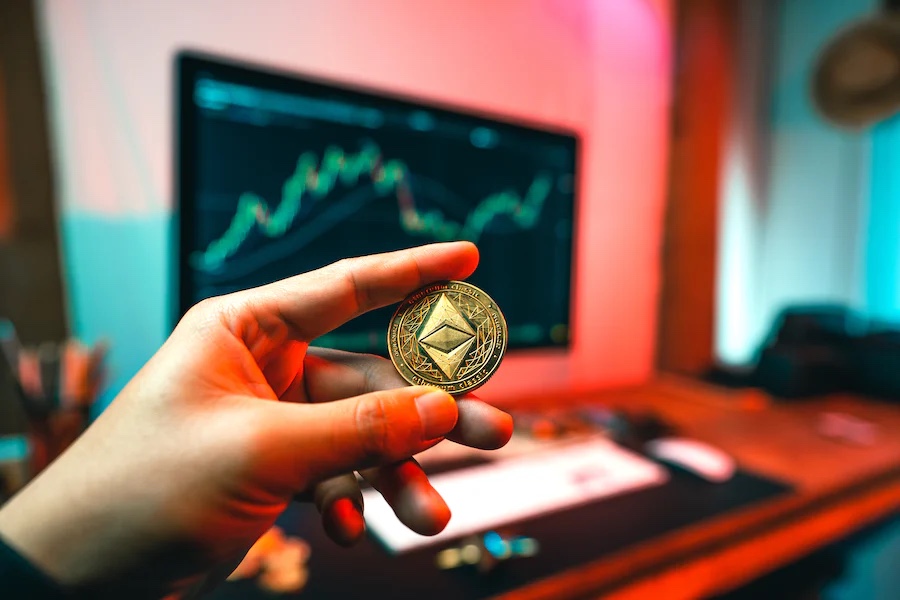In his monthly crypto tech column, Israeli serial entrepreneur Ariel Shapira covers emerging technologies within the crypto, decentralized finance (DeFi) and blockchain space, as well as their roles in shaping the economy of the 21st century.
The impending Metaverse dominates crypto headlines as analysts almost obsessively race to predict what innovations the new digital world will bring. Facebook’s rebranding to Meta seems to be the tip of the iceberg, as Microsoft — and some other Big Tech companies — announce their plans to integrate into the Metaverse.
The hype around the Metaverse is only natural. There’s no question the humans of the future will spend more of their time than some would care to admit wearing a VR headset. But the keyword here is future — most Metaverse developments are building a digital world for which the vast majority of humans won’t have use for many years to come. It’s important to save energy and attention for the developments coming out of mainstream crypto/DeFi because they are already massively transforming economic incentives.
Take Ripple (XRP), which was sued by the U.S. Securities and Exchange Commission (SEC) for allegedly offering an illegal securities offering through sales of its cryptocurrency token, XRP. The company that steered the advantages of blockchain away from the “let’s overthrow the banks” crowd to the “let’s work with them” crowd has come a long way from the days in which many thought a Federal lawsuit would be the last nail in the coffin of crypto as an industry, recently having taken an upper hand in the lawsuit. Several thousand miles south of the United States, Bitcoin (BTC) has become the focal point of a city in El Salvador.
Related: SEC vs. Ripple: A predictable but undesirable development
These two symbolic developments highlight the magnitude of blockchain-based finance and its stride toward mass adoption, and it’s worth taking a closer look at them, as well as other major blockchain successes looking forward. Just as many crypto investors lock in their gains periodically rather than holding forever, so too must the industry.
The Ripple effect
The recent change of tides in the landmark SEC case against Ripple could amp up the momentum for crypto adoption. Two years ago, the SEC sued Ripple for allegedly raising “over $1.3 billion through an unregistered, ongoing digital asset securities offering.” The case stirred fear in the hearts of similar projects, as well as investors concerned about the implications of their investments. But the tables have turned, and Ripple claimed “a very big win,” when the judge denied the SEC’s request to reconsider shielding key documents.

Should Ripple fend off the SEC lawsuit, the world’s lone superpower could be well on its way to taking a friendlier stance on crypto, and that would open the floodgates. And that doesn’t necessarily mean that the most radical crypto purists would be emboldened. Ripple’s work toward arming outdated banks and traditional financial infrastructure with the blockchain-powered tools already being used by DeFi platforms could give legitimacy to the idea of updating the centralized financial system, rather than replacing it with the libertarian DeFi dream.
Related: It is time for the US to create a ‘Ripple test’ for crypto
This would have serious economic implications for the future of the global economy that analysts should spend at least some of the time they think about NFTs deliberating.
Making DeFi accessible
And while Ripple makes waves and Bored Apes populate Twitter, what of DeFi? The market is currently valued at 207 billion, compared to slightly above 104 billion on April 25, 2021. DeFi is actively opening traditional investment opportunities to retail investors across the globe. At a time in which inflation is rising, and housing becomes less affordable across the globe, access to investment opportunities for retail investors, aka average people, can be…
Read More: cointelegraph.com









 Bitcoin
Bitcoin  Ethereum
Ethereum  Tether
Tether  Solana
Solana  USDC
USDC  XRP
XRP  Lido Staked Ether
Lido Staked Ether  Dogecoin
Dogecoin  Toncoin
Toncoin  Cardano
Cardano  Shiba Inu
Shiba Inu  Avalanche
Avalanche  TRON
TRON  Wrapped Bitcoin
Wrapped Bitcoin  Polkadot
Polkadot  Bitcoin Cash
Bitcoin Cash  Chainlink
Chainlink  NEAR Protocol
NEAR Protocol  Polygon
Polygon  Litecoin
Litecoin  Fetch.ai
Fetch.ai  Internet Computer
Internet Computer  Uniswap
Uniswap  Dai
Dai  LEO Token
LEO Token  Render
Render  Ethereum Classic
Ethereum Classic  Hedera
Hedera  Aptos
Aptos  First Digital USD
First Digital USD  Cosmos Hub
Cosmos Hub  Mantle
Mantle  Pepe
Pepe  Cronos
Cronos  Stacks
Stacks  dogwifhat
dogwifhat  Filecoin
Filecoin  Immutable
Immutable  Stellar
Stellar  Wrapped eETH
Wrapped eETH  XT.com
XT.com  OKB
OKB  Renzo Restaked ETH
Renzo Restaked ETH  Bittensor
Bittensor  Optimism
Optimism  Arbitrum
Arbitrum  The Graph
The Graph